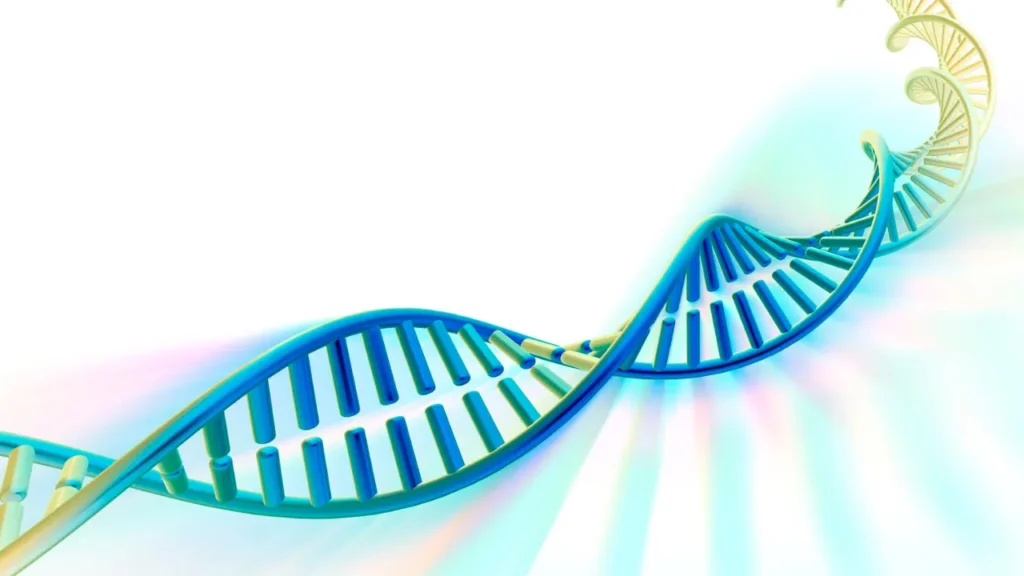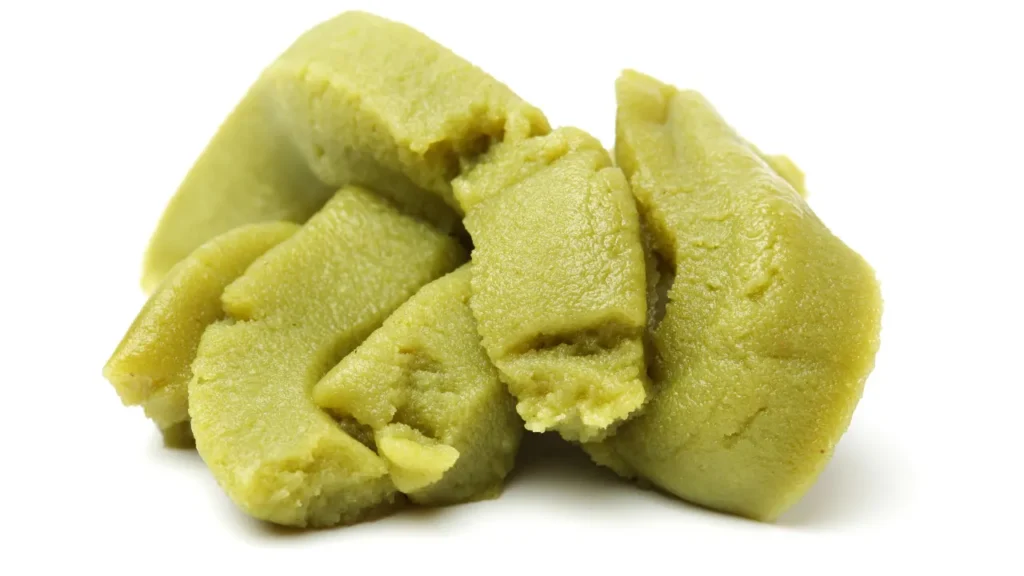Wasabi, also known as Japanese horseradish (wasabia japonica), is a plant in the brassicaceae family, which also includes mustard, cabbage, and broccoli. Wasabi has historically been used as a condiment for sushi and sashimi in traditional Japanese cuisine. It is known for its acrid flavor and distinctive scent. Nutritional scientific interest in wasabi has been increasing recently due to its possible health advantages and use as a dietary supplement. This article provides a thorough understanding of wasabi’s nature, health advantages, recommended dosage, side effects, potential drug interactions, and proper consumption. The article will also go into great scientific detail regarding the physiology and chemistry of wasabi’s effects on the body and brain.
You May Also Like:
CBD for Concentration: 3 Epic Benefits that Boost Your Focus
CBD for Concentration: The Productivity Hack for Energy and Focus
Wasabi: Benefits, Dosage, Side Effects, Drug Interactions, And Other Important Information is an original (NootropicsPlanet) article.
Nature of Wasabi
The wasabia japonica plant, which is indigenous to Japan, produces rhizomes that are used to make wasabi. When the rhizome is grated or crushed, a class of volatile chemicals known as isothiocyanates are produced, giving wasabi its distinctive flavor and scent. Wasabi has long been utilized in Japanese folk medicine for its antibacterial, anti-inflammatory, and anti-cancer properties in addition to its culinary use.
Health Benefits of Wasabi
Wasabi provides a number of health advantages, mostly because it contains isothiocyanates. These advantages include potential cardiovascular benefits as well as antibacterial, anti-inflammatory, anti-cancer, and neuro-protective properties.
Effects of Antimicrobials
Isothiocyanates from wasabi, in particular AITC, have antibacterial properties that are effective against a variety of bacteria, fungi, and viruses. These substances have the ability to compromise the integrity of microorganisms’ cell membranes, resulting in cell lysis and death. Wasabi’s antibacterial properties have been researched for potential use in food preservation and the avoidance of food-borne infections.
Anti-inflammatory Effects
It has been demonstrated that wasabi’s AITC and other isothiocyanates have anti-inflammatory properties. Nuclear factor-kappa B (NF-B), a crucial transcription factor involved in the inflammatory response, can be inhibited by these substances, which can also affect the production of pro-inflammatory cytokines. Wasabi can help treat chronic inflammatory illnesses and guard against the emergence of diseases with its potential to lower inflammation.
Effects Against Cancer
In numerous in vitro and in vivo studies, the isothiocyanates from wasabi, particularly 6-MSITC and 6-MTITC, have shown to have anti-cancer properties. These substances have the ability to stop the cell cycle, encourage apoptosis, and prevent the spread of cancer cells. The regulation of several signaling pathways, including the NF-B, PI3K/Akt, and MAPK pathways, may be the cause of wasabi’s anti-cancer effects.
Effects of Neuro-protection
According to recent studies, wasabi can have potential neuro-protective benefits. It has been demonstrated that AITC and other isothiocyanates can shield neuronal cells from oxidative stress-related damage, which plays a role in the pathogenesis of neuro-degenerative illnesses including Alzheimer’s and Parkinson’s disease. Wasabi’s antioxidant properties and ability to regulate crucial signaling pathways involved in brain cell survival and function may be responsible for its neuro-protective effects.
Heart Health Benefits
Wasabi can provide potential cardiovascular advantages, according to preliminary research, though more research is needed to substantiate these claims. As platelet aggregation has been demonstrated to be inhibited by AITC, this can lower the risk of thrombosis and associated cardiovascular issues. Additionally, the anti-inflammatory properties of wasabi can help prevent atherosclerosis, a significant cause of cardiovascular disease.

Chemistry of Wasabi
Wasabi’s main bio-active ingredients, isothiocyanates, are what give it its medicinal properties. Glucosinolates, which are sulfur-containing secondary metabolites found in the brassicaceae family, are hydrolyzed by enzymes to create these chemicals. Allyl isothiocyanate (AITC) is the most prevalent and well researched isothiocyanate found in wasabi. Smaller levels of 6-methylsulfinylhexyl isothiocyanate (6-MSITC) and 6-methylthiohexyl isothiocyanate (6-MTITC) are also included.
Physiological Properties of Wasabi
Wasabi’s bioactive isothiocyanate chemicals are principally responsible for the physiological mechanisms underpinning its health benefits. We shall investigate the modes of action:
Effects of Antimicrobials
Wasabi’s isothiocyanates have antibacterial properties because of their electrophilic nature, which enables them to interact with biological elements like proteins, lipids, and DNA that contain nucleophilic groups. Due to this contact, microbial cells lose their structural and functional integrity, leading to cell lysis and death.
Anti-inflammatory Effects
Isothiocyanates found in wasabi, like AITC, have the ability to control the release of pro-inflammatory cytokines and prevent the activation of NF-B, a crucial transcription factor involved in the inflammatory response. Wasabi can lessen the production of genes that produce pro-inflammatory chemicals by inhibiting NF-B activation, which lessens inflammation and the cellular damage it causes.
Effects Against Cancer
Wasabi’s isothiocyanates have anti-cancer abilities because they can control several signalling pathways involved in cell proliferation, differentiation, death, and metastasis. Wasabi’s isothiocyanates can cause cell cycle arrest, encourage apoptosis, and limit the growth and spread of cancer cells by blocking the NF-B, PI3K/Akt, and MAPK pathways.
Effects of Neuro-protection
Wasabi’s isothiocyanates’ antioxidant properties and ability to affect important signaling pathways involved in neuronal cell survival and function are credited for the neuro-protective effects of wasabi. Wasabi can guard against the harm and dysfunction brought on by neuro-degenerative disorders by scavenging reactive oxygen species and reducing oxidative stress.
Heart Health Benefits
Wasabi’s anti-inflammatory and anti-platelet properties work together to have positive effects on the cardiovascular system potentially. Wasabi can offer protection from atherosclerosis and thrombosis, two major causes of cardiovascular disease, by lowering inflammation and preventing platelet aggregation.

Optimal Dosage
Due to individual responses’ diversity and the paucity of clinical studies, determining the ideal dosage of wasabi for health benefits is difficult. However, other research has suggested that consuming 50–150 mg of wasabi isothiocyanates or 1-3 grammes of fresh wasabi rhizome on a daily basis may have health benefits. Before adding wasabi to your diet as a nutritional supplement, it is crucial to seek medical advice, especially if you have existing medical concerns or are taking any other drugs.
Side Effects and Potential Substance Interactions
Even while wasabi is typically regarded as harmless when used as a condiment in moderation, excessive consumption may result in various side effects and possible drug interactions:
Gastrointestinal Pain
Wasabi’s aromatic and irritating properties can result in gastrointestinal discomfort from excessive ingestion, including heartburn, diarrhoea, and stomach pain.
Allergies
Wasabi and other plants in the brassicaceae family can cause allergic reactions in certain people, including skin rashes, itching, and swelling.
Antiplatelet and Anticoagulant Drugs
Wasabi may interact with anticoagulant and antiplatelet drugs, potentially raising the risk of bleeding, due to its tendency to block platelet aggregation. Before including wasabi in your diet, if you are taking such medications, you should speak with your doctor.

Responsible Usage
It is crucial to use high-quality, genuine wasabi products and include them in a balanced diet to maximize the health benefits of wasabi.
Choose fresh wasabi rhizomes or reliable wasabi products as many commercial wasabi products contain little to no actual wasabi and are instead made of horseradish, mustard, and artificial colorants. Consume wasabi in moderation, as too much can cause gastrointestinal discomfort and other side effects. Include wasabi in a balanced, nutrient-rich diet to support your overall health and well-being.
Wasabi:
Conclusion
While wasabi can support many health concerns and can have many important benefits, especially for heart health, it is important to remember there are still side effects. Understanding how the isothiocyanate chemicals in wasabi work physiologically enables us to grasp the intricate interactions that take place inside the body and result in the different health advantages of wasabi ingestion. Talk to your doctor first before starting a wasabi supplement.

References:
- Wasabi: The Remarkable Health Benefits of the Japanese Condiment. Retrieved from: https://www.medicalnewstoday.com/articles/323037
- The Anti-inflammatory Effects of Isothiocyanates: A Systematic Review. Retrieved from: https://www.ncbi.nlm.nih.gov/pmc/articles/PMC6885087/
Important Note: The information contained in this article is for general informational purposes only, and should not be construed as health or medical advice, nor is it intended to diagnose, prevent, treat, or cure any disease or health condition. Before embarking on any diet, fitness regimen, or program of nutritional supplementation, it is advisable to consult your healthcare professional in order to determine its safety and probable efficacy in terms of your individual state of health.
Regarding Nutritional Supplements Or Other Non-Prescription Health Products: If any nutritional supplements or other non-prescription health products are mentioned in the foregoing article, any claims or statements made about them have not been evaluated by the U.S. Food and Drug Administration, and such nutritional supplements or other health products are not intended to diagnose, treat, cure, or prevent any disease.


